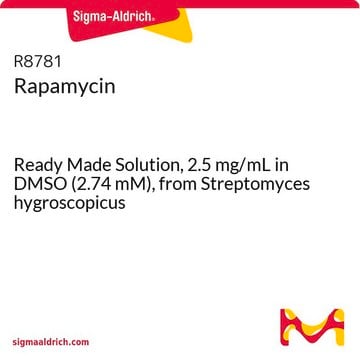T1850000
Tretinoin
European Pharmacopoeia (EP) Reference Standard
Synonym(s):
Retinoic acid, ATRA, Tretinoin, Vitamin A acid, all-trans-Retinoic acid
About This Item
Recommended Products
biological source
synthetic
grade
pharmaceutical primary standard
Agency
EP
API family
tretinoin
form
solid
manufacturer/tradename
EDQM
technique(s)
gas chromatography (GC): suitable
liquid chromatography (LC): suitable
mp
180-181 °C (lit.)
application(s)
pharmaceutical (small molecule)
format
neat
storage temp.
2-8°C
SMILES string
CC1=C(\C=C\C(C)=C\C=C\C(C)=C\C(O)=O)C(C)(C)CCC1
InChI
1S/C20H28O2/c1-15(8-6-9-16(2)14-19(21)22)11-12-18-17(3)10-7-13-20(18,4)5/h6,8-9,11-12,14H,7,10,13H2,1-5H3,(H,21,22)/b9-6+,12-11+,15-8+,16-14+
InChI key
SHGAZHPCJJPHSC-YCNIQYBTSA-N
Gene Information
human ... RARA(5914) , RARB(5915) , RARG(5916)
Looking for similar products? Visit Product Comparison Guide
General description
Tretinoin is a medication used to treat a variety of skin conditions such as photodamaged skin, acne, etc. It is used as an anti-aging product and also as an oral treatment for leukemia.
Application
Biochem/physiol Actions
Packaging
Other Notes
Signal Word
Danger
Hazard Statements
Precautionary Statements
Hazard Classifications
Acute Tox. 4 Oral - Aquatic Acute 1 - Aquatic Chronic 1 - Repr. 1B - Skin Irrit. 2
Storage Class Code
6.1C - Combustible acute toxic Cat.3 / toxic compounds or compounds which causing chronic effects
WGK
WGK 2
Flash Point(F)
Not applicable
Flash Point(C)
Not applicable
Choose from one of the most recent versions:
Certificates of Analysis (COA)
Sorry, we don't have COAs for this product available online at this time.
If you need assistance, please contact Customer Support.
Already Own This Product?
Find documentation for the products that you have recently purchased in the Document Library.
Customers Also Viewed
Our team of scientists has experience in all areas of research including Life Science, Material Science, Chemical Synthesis, Chromatography, Analytical and many others.
Contact Technical Service















